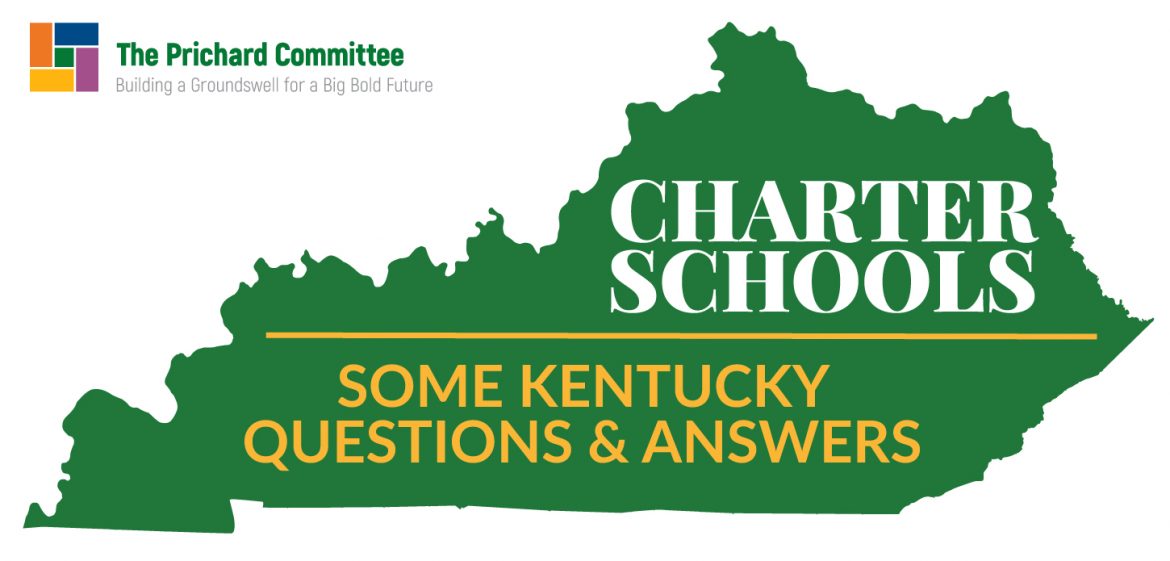Under Kentucky law, a public charter school will be one that:
- Serves students whose families apply, with a lottery to award seats if there are too many applications
- Is governed by a board of directors
- Receives authorization and oversight from another public agency: a school board, mayor, university board, or collective of school board members
- Gets its funding mainly through tax dollars allocated based on the students it enrolls
- Is subject to rules on school accountability, health, safety, civil rights, disability rights, and data reporting that apply to all Kentucky schools
- Is exempt from some other rules and regulations
Legally, a Kentucky public charter school will be “a public body corporate and politic,” which will make it a kind of government agency, rather than a private corporation subject to for-profit or non-profit regulations. Kentucky has other entities that are set up as public bodies corporate and politic, including the Kentucky lottery corporation, water commissions, and urban renewal and community development agencies.
Practically, a charter school differs from more familiar public schools because the local school district doesn’t have the same kinds of control. For example, the school board cannot decrease funding or reassign students, and the superintendent has no role in evaluating, promoting, disciplining, or dismissing the school’s staff. If the local school board is the authorizer, it will have a limited role in overseeing the charter school and evaluating evidence on whether the school should be renewed at the end of its contract: much smaller than the board’s role with other district schools.
Kentucky law also defines three specific kinds of charter schools:
- An urban academy is “a public charter school that includes an enrollment preference for students who live in close proximity to the school as defined in the charter contract.” In the pilot program created by 2022’s House Bill 9, the pilot charter schools in Jefferson County and Northern Kentucky must serve as urban academies.
- A virtual public charter school is “a public charter school that offers educational services primarily or completely through an online program.” Kentucky law spells out that virtual charter schools are not allowed.
- A conversion public charter school is an existing public school that converts to work under the charter school rules. If a school’s results are in the lowest 5% of all schools at its level, it can become a conversion charter and 60% of parents and guardians of its students sign a petition for conversion. If a school’s results are not in the lowest 5%, it can become a conversion charter if 60% of parents seek conversion, and the local school board approves the change. And a local school board can vote at any time votes to convert an existing public school over which it has authority to a charter school.
Legal Sources: KRS 160.1590 defines public charter schools and other key terms for those schools. 2022’s House Bill 9 amended paragraph (g) of the main charter definition and added the definition for an urban academy.
Series Links:
Charter schools: taking on the questions (Introduction)
1. What is a charter school?
2. What student results are charter schools expected to deliver?
3. Which school laws do charter schools have to follow?
4. How can students be admitted to charter schools?
5. Who can authorize charter schools?
6. Who can apply to start a charter school?
7. How can charter schools be closed if they do not deliver?
8. What funding can charter schools receive?




Comments are closed.